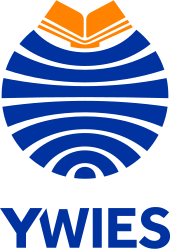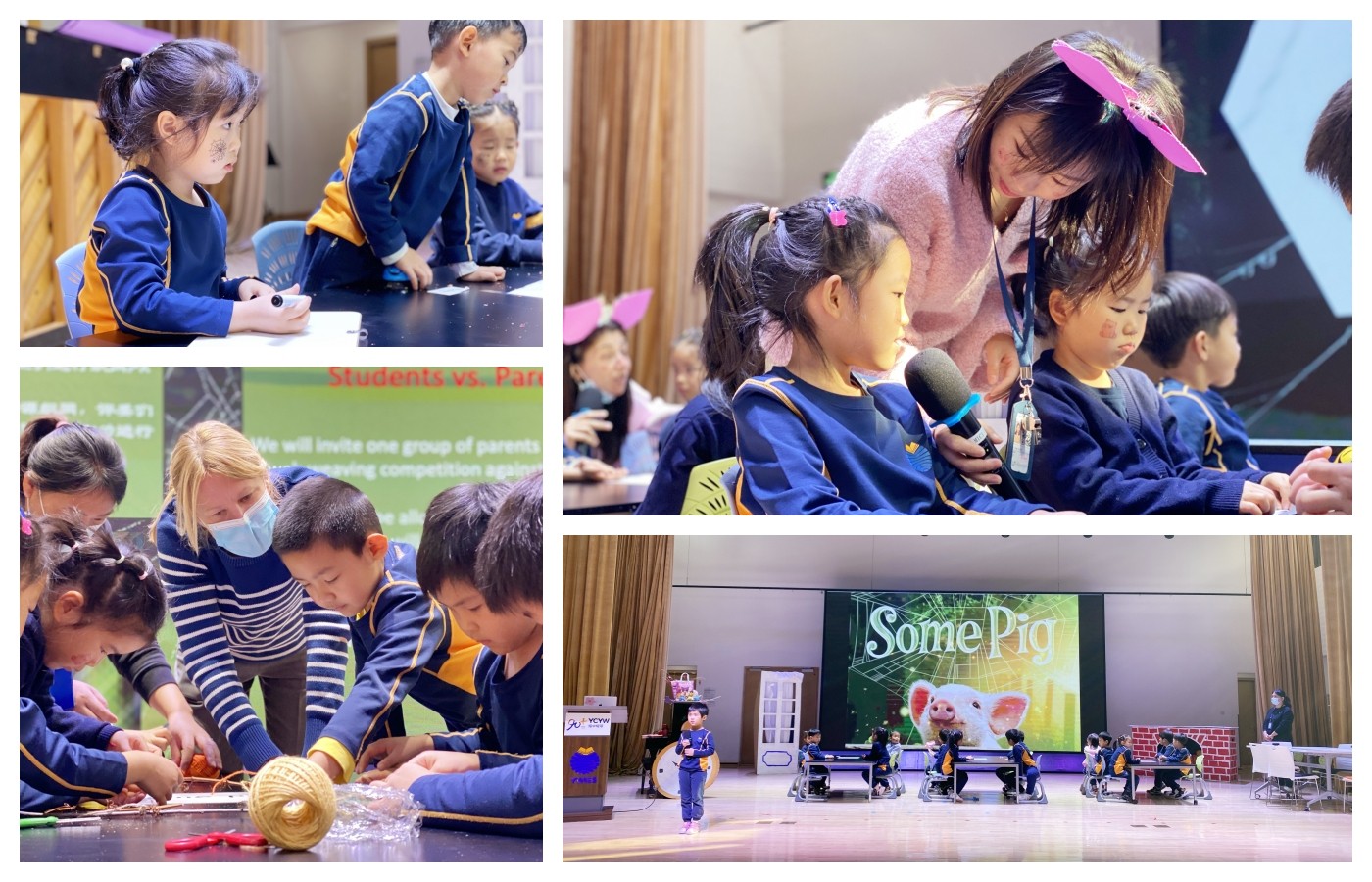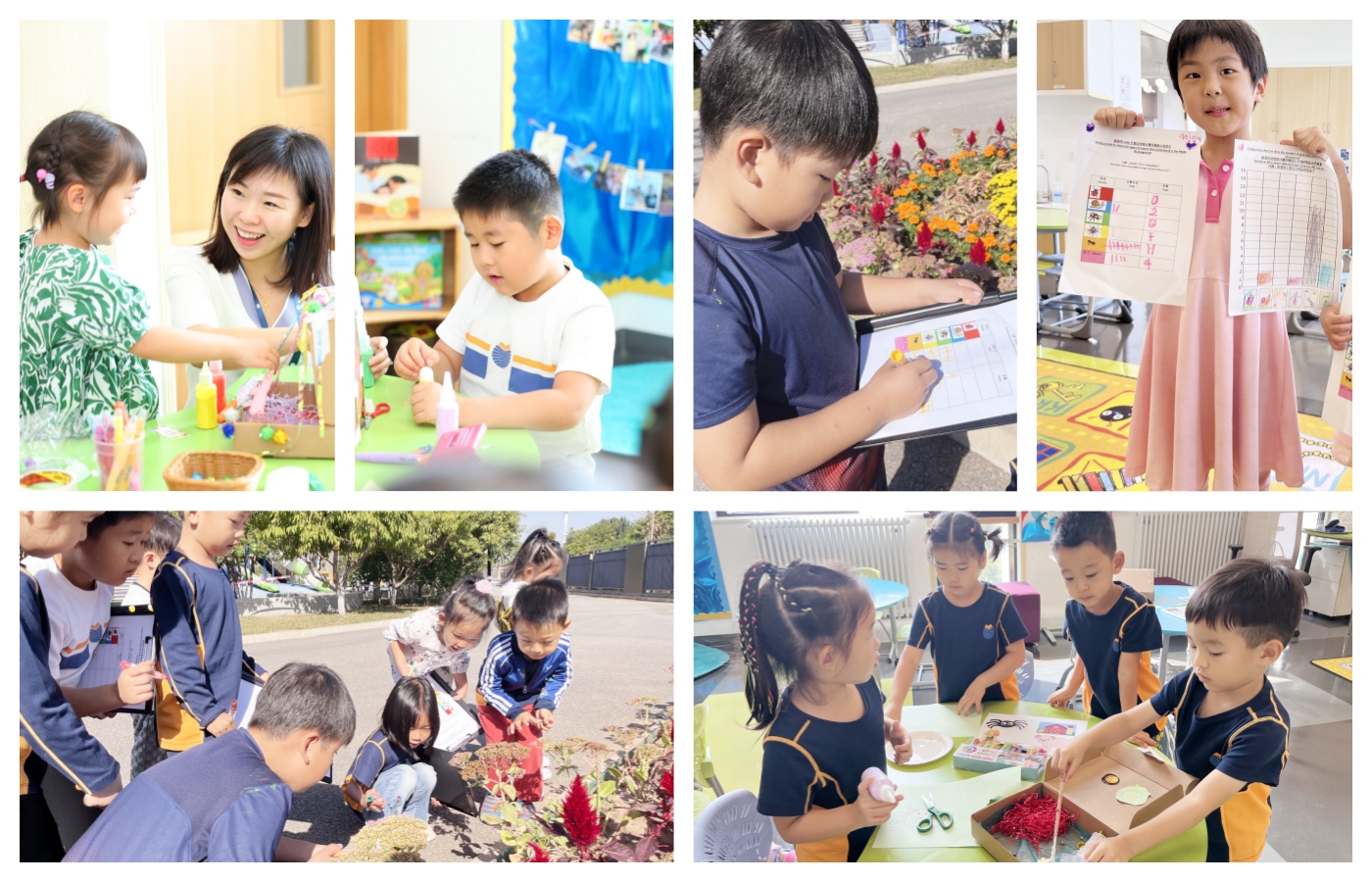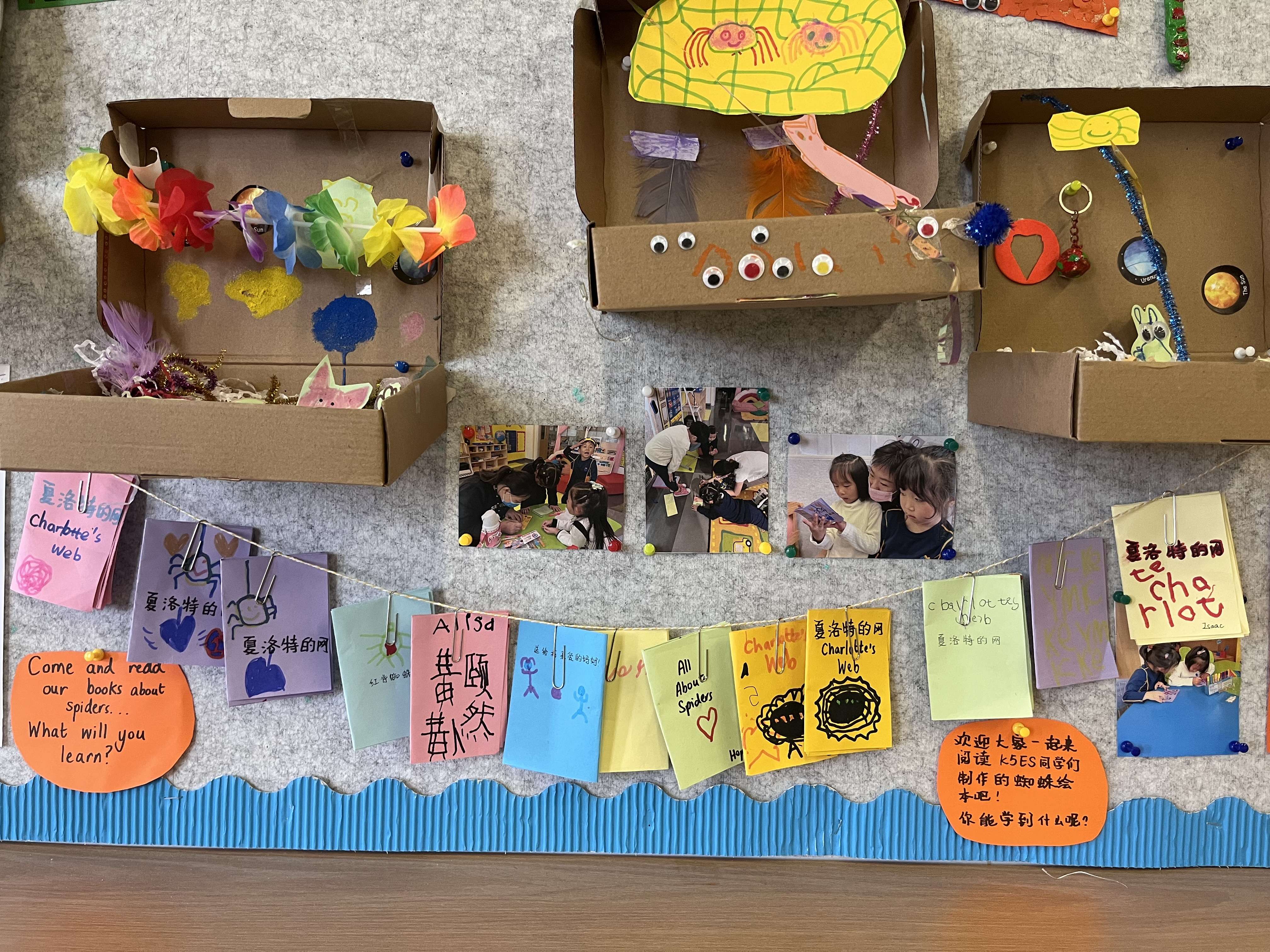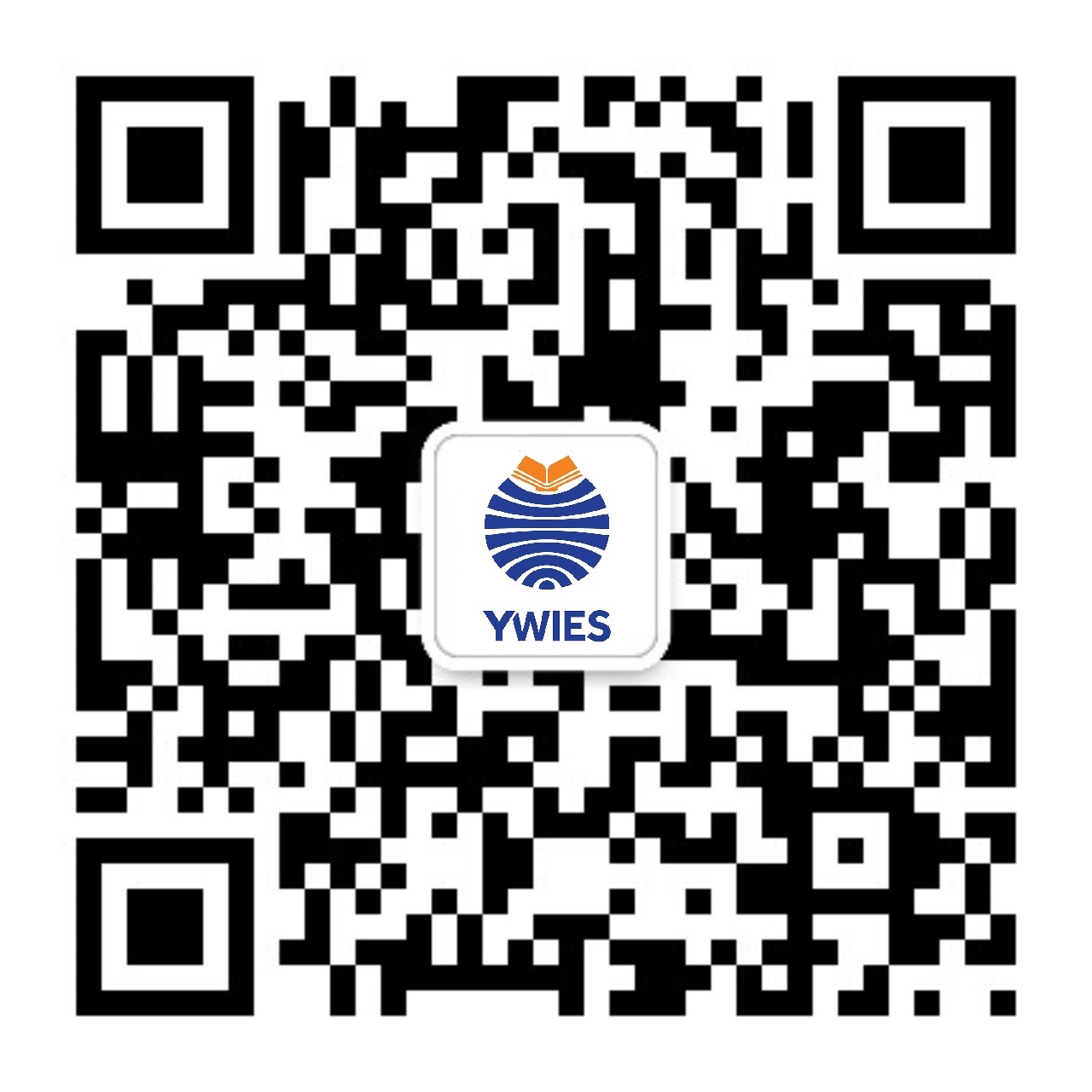Go Back
News
School News
A spider, a story, could contribute these 5 abilities for our students.
School News
02 Mar, 2023
11 : 26
In learning, parents usually don’t know how to help their children to learn through what they are interested in to a wider field. YWIES teachers have our own effective methods, in which a series of courses are provided oriented from children’s interests. The learning is expanded to language, society, art, mathematics, science and other aspects.
Let’s follow our teachers, Echo and Sophia’s Emergent Curriculum, to see how they help children expand their knowledge in today’s article.
Starting with children’s interest
One morning, when the children were having breakfast, they found a spider weaving a web near the windowsill. Everyone thought that the spider might be hungry and wanted to eat our breakfast. The following week, the Spider worked hard outside the class window every day. Some students warmly called him our "Spider Friend"! The word "friend" does not seem to resonate with all children. Some of them said spiders look ugly and disgusting. Others said spiders know how to weave webs to catch insects and that they can't be pets.
As the children's discussion became more and more intense, we decided to start a new journey, to understand spiders better, with the classic work of American writer E. B White and his famous novel, Charlotte’s Web!
Language & social skills
After sharing the story of Charlotte's Web, we shared our ideas about the personality traits of Charlotte the spider with the children, who expressed themselves, using both Chinese and English words such as "friendly, brave, persistent, and compassionate." We also explored important events from the story through questioning, for example, “Do you still feel that spiders are ugly characters who cannot be our friends?” This not only develops children's language skills but also encourages them to develop an awareness of social values and norms.
Art Skills
We let the students to have ownership over our learning environment, they were involved as co-creators of our learning space and created artistic props such as a pig, a small spider and the lettering for the word, “Charlotte,” to decorate our learning community, explicitly relating it to our focus story/theme – Charlotte’s Web.
Math Skills
Charlotte, the little spider in front of the class window, had not visited our class for a long time. The children wondered if Charlotte had a new job to do? Or if she had gone to the field to make insect friends?
The children‘s questions inspired our new direction of learning. Why not use the tally counting method we learnt to count the number of different types of insect in the school playground? Maybe we will find Charlotte at the same time. The children showed great passion and interest in recording and representing data to show the number of different types of insect that can be found in our school playground.
After counting the number of insects with the tally counting method, we discussed with the children what kinds of insects were the most popular at YWIES playground? Which insects were the least popular? We found several spiders, etc. We found that the children were somewhat confused when categorising the data in this way. So, we wondered whether it would be clearer to them, if we analysed the tally results and represented it in the form of histograms.
After introducing and explaining histograms to the children, they created their own bar charts! In this activity, we saw the children's flexible transformation and application of knowledge from the two statistical methods they had learnt, which played a positive role in the cultivation of their early mathematical reasoning ability.
Science
In continuing our theme, through music activities, we have been learning the song "Incy Wincy Spider." The children loved the clip of the little spider being washed down the water pipe by the rain. We thought that we could make a waterproof umbrella for the little spider so that the spider could keep its body clean and dry and no longer be afraid of the rain!
So what kind of material should we choose to make an umbrella that is waterproof? From this, we approached a scientific inquiry into the properties of materials, we conducted an interesting experiment– making umbrellas for spiders using different materials with varying waterproof properties. The children began an exploration through hands-on practice, observation and comparison. This open-ended activity of allowed the children to reflect on the results and conclude their own findings. Consequently, allowing the children to become more active in their inquiries.
Charlotte’s Web Theme Challenge
To celebrate this wonderful topic, we reviewed our learning in the form of a quiz involving a series of questions and challenges, not only for the children, but also, for their parents. It was a truly warm and unique experience watching our children collaborate with their families in a friendly and competitive atmosphere.
YWIES of Beijing ECE always adhered to inquiry-based learning. It's about being a researcher of learning. Our teachers take children to explore new knowledge from their interests and expand to multiple fields. In this process, children can think, discover and practice independently and reflective in nature.
